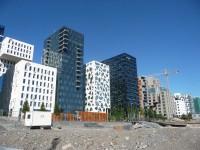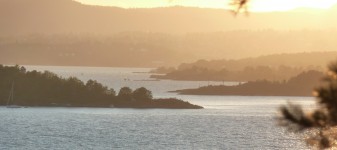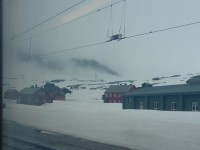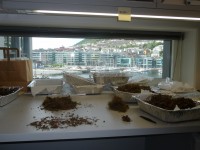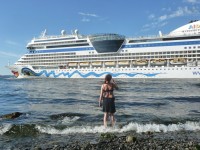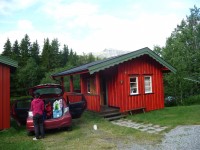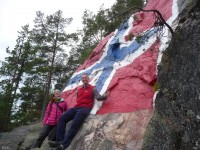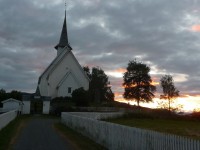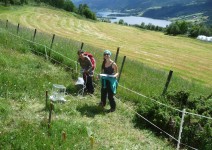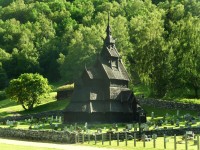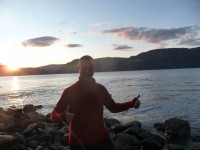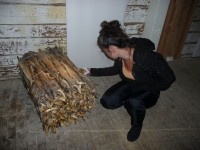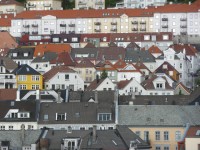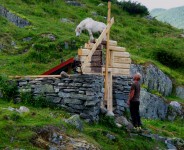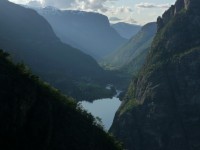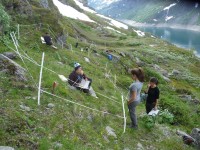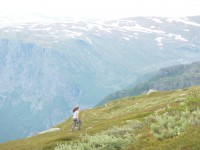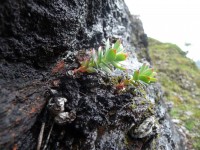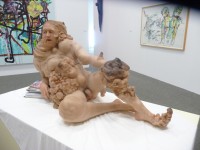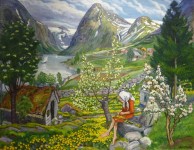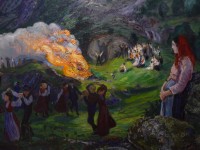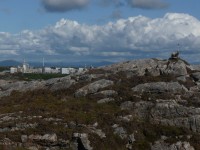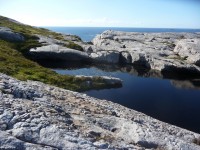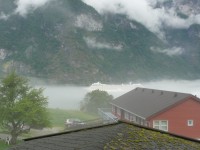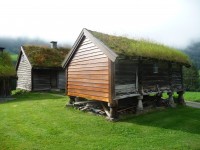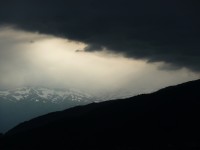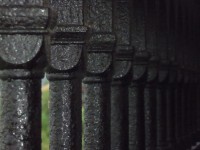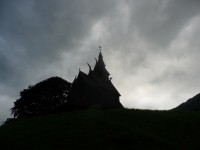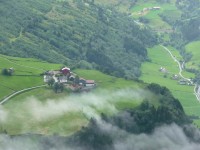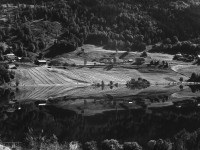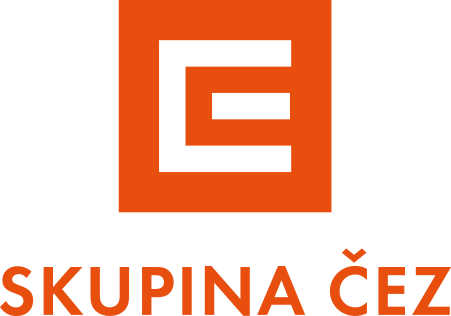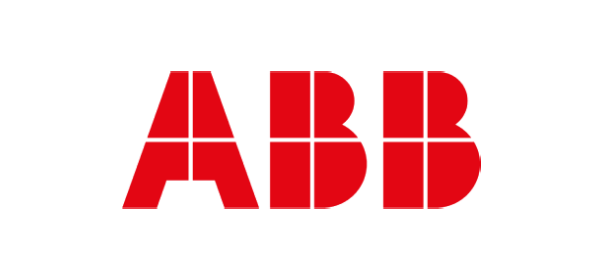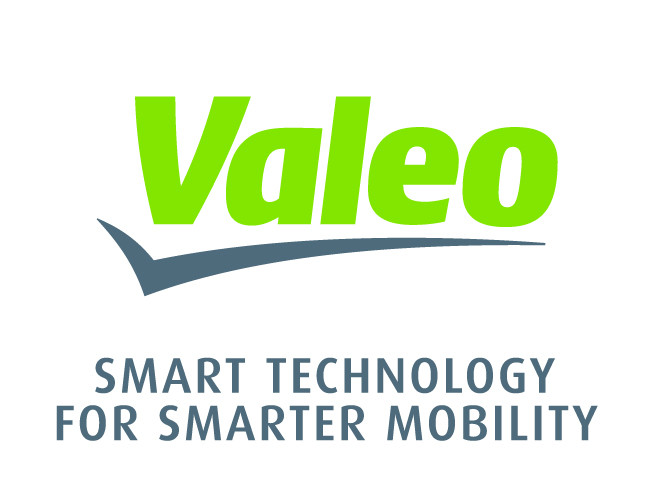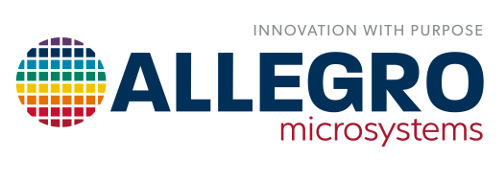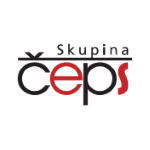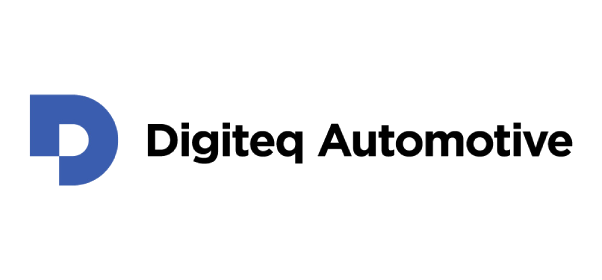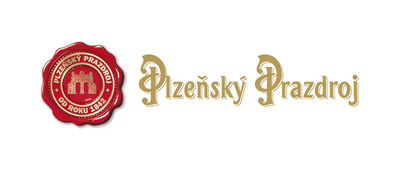⬅ zpět na info
Uveřejněné zprávy z praxí neprošly ani jazykovou ani textovou úpravou. Proto, prosím, omluvte chybějící „hacky a carky“, stylistické a gramatické nedokonalosti textů.
BC. Vojtěch Škara, CTU Prague, ročník 4
About the country
Location of the place
Norway, Bergen, Universitet i Bergen, Department of Biology
Norway, officially the Kingdom of Norway, is a sovereign and unitary monarchy whose territory comprises the western portion of the Scandinavian Peninsula plus Jan Mayen and the Arctic archipelago of Svalbard. Norway has a total area of 385,252 square kilometres and a population of 5,165,800 people (2015). The country shares a long eastern border with Sweden (1,619 km long). Norway is bordered by Finland and Russia to the north-east, and the Skagerrak Strait to the south, with Denmark on the other side. Norway has an extensive coastline, facing the North Atlantic Ocean and the Barents Sea.
Norway has both administrative and political subdivisions on two levels, known as counties (fylke) and municipalities (kommune). The Sámi people have a certain amount of self-determination and influence over traditional territories through the Sámi Parliament and the Finnmark Act. Norway maintains close ties with the European Union and its member countries (despite rejecting full EU membership in two referenda), as well as with the United States. Norway is a founding member of the United Nations, NATO, the Council of Europe, the Antarctic Treaty and the Nordic Council; a member of the European Economic Area, the WTO and the OECD; and is also a part of the Schengen Area.
The country maintains a combination of market economy and a Nordic welfare model with universal health care and a comprehensive social security system. Norway has extensive reserves of petroleum, natural gas, minerals, lumber, seafood, fresh water, and hydropower. The petroleum industry accounts for around a quarter of the country's gross domestic product. The country has the fourth-highest per capita income in the world on the World Bank and IMF lists, as well as ninth-highest on a more comprehensive CIA list. (source: Wikipedia)
UiB
The University of Bergen (UiB) is an internationally recognised research university. UiB is the most cited university in Norway. There are six faculties at UiB and there are a total of 14,800 students at the university. Around 1,550 of these are international students. It employs 3,600 staff. PhD candidates are paid employees of staff, making the doctoral degree at UiB particularly attractive for rising talent. About one in three graduating doctors are from outside Norway. (source: www.uib.no/en/about)
BIO (Department of Biology)
BIO is among the largest departments at the University of Bergen and has more than 50 permanent scientific positions, more than 50 technical/administrative positions, and more than 100 temporary scientific positions, including PhDs and post docs. BIO undertakes research across a broad range of disciplines: developmental biology, microbiology, evolutionary biology, ecology and biodiversity. BIO is also strongly involved in themes such as climate, aquaculture, fish health, nutrition, fisheries, and petroleum. (source: www.uib.no/en/bio/57639/about-bio)
Norway, officially the Kingdom of Norway, is a sovereign and unitary monarchy whose territory comprises the western portion of the Scandinavian Peninsula plus Jan Mayen and the Arctic archipelago of Svalbard. Norway has a total area of 385,252 square kilometres and a population of 5,165,800 people (2015). The country shares a long eastern border with Sweden (1,619 km long). Norway is bordered by Finland and Russia to the north-east, and the Skagerrak Strait to the south, with Denmark on the other side. Norway has an extensive coastline, facing the North Atlantic Ocean and the Barents Sea.
Norway has both administrative and political subdivisions on two levels, known as counties (fylke) and municipalities (kommune). The Sámi people have a certain amount of self-determination and influence over traditional territories through the Sámi Parliament and the Finnmark Act. Norway maintains close ties with the European Union and its member countries (despite rejecting full EU membership in two referenda), as well as with the United States. Norway is a founding member of the United Nations, NATO, the Council of Europe, the Antarctic Treaty and the Nordic Council; a member of the European Economic Area, the WTO and the OECD; and is also a part of the Schengen Area.
The country maintains a combination of market economy and a Nordic welfare model with universal health care and a comprehensive social security system. Norway has extensive reserves of petroleum, natural gas, minerals, lumber, seafood, fresh water, and hydropower. The petroleum industry accounts for around a quarter of the country's gross domestic product. The country has the fourth-highest per capita income in the world on the World Bank and IMF lists, as well as ninth-highest on a more comprehensive CIA list. (source: Wikipedia)
UiB
The University of Bergen (UiB) is an internationally recognised research university. UiB is the most cited university in Norway. There are six faculties at UiB and there are a total of 14,800 students at the university. Around 1,550 of these are international students. It employs 3,600 staff. PhD candidates are paid employees of staff, making the doctoral degree at UiB particularly attractive for rising talent. About one in three graduating doctors are from outside Norway. (source: www.uib.no/en/about)
BIO (Department of Biology)
BIO is among the largest departments at the University of Bergen and has more than 50 permanent scientific positions, more than 50 technical/administrative positions, and more than 100 temporary scientific positions, including PhDs and post docs. BIO undertakes research across a broad range of disciplines: developmental biology, microbiology, evolutionary biology, ecology and biodiversity. BIO is also strongly involved in themes such as climate, aquaculture, fish health, nutrition, fisheries, and petroleum. (source: www.uib.no/en/bio/57639/about-bio)
City
Bergen
Bergen is a city on the Bergen peninsula in Hordaland county on the west coast of Norway. The city was established before 1070 AD. As of 2014 the municipal population was 279,400 making it, after Oslo, the second-most populous city in Norway. (The Greater Bergen Region population is 414,900.) Bergen is an international centre for aquaculture, shipping, offshore petroleum industry and subsea technology, and a national centre for higher education, tourism and finance. (source: Wikipedia)
Bergen is a city on the Bergen peninsula in Hordaland county on the west coast of Norway. The city was established before 1070 AD. As of 2014 the municipal population was 279,400 making it, after Oslo, the second-most populous city in Norway. (The Greater Bergen Region population is 414,900.) Bergen is an international centre for aquaculture, shipping, offshore petroleum industry and subsea technology, and a national centre for higher education, tourism and finance. (source: Wikipedia)
Surroundings (possible trips, ...)
There are seven mountains above the city of Bergen, which may be climbed. The city itself is beautiful and historical, although quite small. Perfect for fans of sea and ships, even if the open sea itself can not be reached very easily. There is a lively fish market in the city centry and perfect viewpoints called Fløyen and Ulriken, as well. Sometimes I just walked through resident areas and admired buildings (nearby Gamlehaugen towads Fantoft; quarter under the Law faculty; houses on hillside under Fløyen).The public transport is expensive, therefore I was happy, that I had a possibility to assist during the field work and drive a car many times.
However there are some museums in Bergen and close surrounding, which can be visited:
a) Fishing museum in Sandvika;
b) "Kystmuseum" (coastal museum) westwards on the coast, where one can visit a salamon farm or see a nearby modern petroleum factory;
c) Museum of knitting industry with great collection of till-now working machines and with possible free transport by an IKEA bus;
d) gallery of moderna art KODE in a nice pre-war building at that time with collection of amazing paintings by Nikolaj Astrup.
e) Museum of sailing in the city centre, which is free for students;
f) perhaps a cultural center focusing of peatland northeast of Bergen, which I didn´t reach becouse of a poor transportation system planning.
g) Public library near the train station suited for young people with a great collection of comic books and movies and possibility to watch for example football match in TV.
However there are some museums in Bergen and close surrounding, which can be visited:
a) Fishing museum in Sandvika;
b) "Kystmuseum" (coastal museum) westwards on the coast, where one can visit a salamon farm or see a nearby modern petroleum factory;
c) Museum of knitting industry with great collection of till-now working machines and with possible free transport by an IKEA bus;
d) gallery of moderna art KODE in a nice pre-war building at that time with collection of amazing paintings by Nikolaj Astrup.
e) Museum of sailing in the city centre, which is free for students;
f) perhaps a cultural center focusing of peatland northeast of Bergen, which I didn´t reach becouse of a poor transportation system planning.
g) Public library near the train station suited for young people with a great collection of comic books and movies and possibility to watch for example football match in TV.
Employer
Employer
UiB, Department of Biology, University of Bergen
Work description
My work consisted of sorting botanical samples in the lab and preparation of basic instruments used for working in the field, digitalizing data obtained in the field and finally of the field work itself, which was the most important part of my trainee programme. This fieldwork included assisting during preparation of site measuring equipement (carbon flux measurements, temperature and soil moisture measurements, other experiments), writing down the data and driving between sites.
Salary (sufficient for local conditions?)
18000 NOK/month, yes
total expenses: 52 970 CZK (accomodation, food, transport, insurance, entrances)
total incomes: 100 800 CZK (salary)
number of days: 49
total expenses: 52 970 CZK (accomodation, food, transport, insurance, entrances)
total incomes: 100 800 CZK (salary)
number of days: 49
Language requirements
English
Accommodation (price, who provided it)
I was accomodated in the very centre of Bergen in a cozy student flat in the top floor with a view over rooftops. There were more rooms of other students, but these were most of the time out of the city on a vacation. It is a standart student flat with a bathroom and a well equiped kitchen. Washing machine was in a students laundry few block further. My only complain regarding IAESTE concerns paying the rent. I was not informed before my arrival, what will be the price. In the end this is just a minor complain, becouse we agreed on a different price and solved the issue with a landlord during my stay in a way, that we both were satisfied.
Social life
Meeting IAESTE members (pick-up at the airport, organized events...)
The IAESTE member Karoline picked me up on the train station late in the evening, which was nice of her. I didn´t fly, since going by bus/train is more eco-friendly and offers better experince of the journey itself. I would like to pinpoint this fact for future IAESTE trainees and particularly members, who would like to save our living environment.
I was invited few times for a social gathering, but becouse I spent most of the time in the field, I often had to refuse. However, my wish was to spend in the field as much time as possible and, since I am not so familiar with parties and frequent social events, this situation was OK for me.
I was invited few times for a social gathering, but becouse I spent most of the time in the field, I often had to refuse. However, my wish was to spend in the field as much time as possible and, since I am not so familiar with parties and frequent social events, this situation was OK for me.
Meeting other foreign students
It was time of holiday. That is the reason, why the city was basically without students. I´ve met a trainee from Switzerland, who was nice in spite of being a vegetarian. :D
Sport and culture
I don´t do any sport. I just sit on a couch and eat nutella. However, if you are interested in some cultural tips, please read the paragraph called "Surroundings".
Food, local specialties
Norwegians think, they don´t have any good food. I don´t think so. There is brown cheese and other dairy products, there is a delicious salamon, oysters and other clams and fish. Worth of trying is rotkål, pølse med brød or various candies smågodt. If you don´t find this type of cusine tasty, then there is always kebab or tortila. Norway is very open to influences from all over the world.
You always pay more in the shop than in Czech, but if you are able to cook, then the difference is not so big. Sometimes you pay just for better quality. Saying this I mean dairy products etc, but especially fruit, bread are often poor in quality. Meat is ok, but expensive.
Dumpster diving is popular and very effectiv way of "shopping" and can be a way of social gathering as well. But be there on time! Otherwise someone else, particularly during the university semester, will taky it.
My average expenses were 134 NOK per day. This number includes food, museums, social gatherings and a very few beers, excluding days, when I was in the field. (In that time, I didn´t do dumpster diving and bought all food in shops. ) Great thing is, that during the field work is food for workers fully covered by the grant.
You always pay more in the shop than in Czech, but if you are able to cook, then the difference is not so big. Sometimes you pay just for better quality. Saying this I mean dairy products etc, but especially fruit, bread are often poor in quality. Meat is ok, but expensive.
Dumpster diving is popular and very effectiv way of "shopping" and can be a way of social gathering as well. But be there on time! Otherwise someone else, particularly during the university semester, will taky it.
My average expenses were 134 NOK per day. This number includes food, museums, social gatherings and a very few beers, excluding days, when I was in the field. (In that time, I didn´t do dumpster diving and bought all food in shops. ) Great thing is, that during the field work is food for workers fully covered by the grant.
Other information
Possibilites to communicate with the Czech Republic
I communicated telepathicaly with the Czech repubic, when burning resins of sacred frankincense, druming the drums made by indigenous tribes and singing mystic songs to spirits from far afield surrounded by candles arranged with respect to state, when the moon is in the Seventh House and Jupiter aligns with Mars. Occasionally using Skype and email, as well.
Recommendations for students who will go to the same place
Work hard, play hard.
What not to forget with you
Take an internet cable, sleeping bag (depending on your plans), alcohol for you and your new friends, waterproof clothes.
Benefits of the internship
There are several benefits, e.g. the opportunity to live in Norway for a while, being the part of the project and be responsible for minor tasks. I tried out to work in the lab and in the field with professionals, which is always different and more useful compared to learning together with other students without necessary experience. Bright side is being paid in a norwegian way. The field work and driving during it was a great way how to get know big part of Norway with many stunning views, sometimes from sites, where turists don´t go.
There is often a question, if IAESTE trainee do useful work, or rather not. What concerns my internship, I worked on tasks important for the project, my presence was needed (especially during hectic field season) and all members of the team had their own part of responsibility. Even if the sence of project itself for well-being of the society is doubtful, but it is not a topic for this form.
There is often a question, if IAESTE trainee do useful work, or rather not. What concerns my internship, I worked on tasks important for the project, my presence was needed (especially during hectic field season) and all members of the team had their own part of responsibility. Even if the sence of project itself for well-being of the society is doubtful, but it is not a topic for this form.
Cooperation with IAESTE in the foreign country
good
Overall experience with IAESTE
There was a small misunderstanding, if I actually will go in Bergen as a trainee or not before my arrival and I felt uncomfortable after knowing the price of accomodation on place and not sooner, but overall experience is positive and approach to client is professional.
Just my personal remark: Is it really necessary to fly everywhere few times a month like you do at least in Norway just to confirm a small deal? This is not healthy neither for the environment in terms of global climate change, nor for a common sense.
Just my personal remark: Is it really necessary to fly everywhere few times a month like you do at least in Norway just to confirm a small deal? This is not healthy neither for the environment in terms of global climate change, nor for a common sense.
Student's website
Further information can be given personally in case you invite me for a cup of tea and a piece of cake.
Employer's webiste
http://www.uib.no/en/rg/EECRG/55395/seedclim
http://www.uib.no/en/rg/EECRG/85396/funcab
http://www.uib.no/en/rg/EECRG/85396/funcab
Other useful links
https://www.nsb.no/
http://trashwiki.org/en/Trondheim
http://www.museumvest.no/
http://www.sakte.no/
http://www.muho.no/en/the-norwegian-knitting-industry-museum
http://trashwiki.org/en/Trondheim
http://www.museumvest.no/
http://www.sakte.no/
http://www.muho.no/en/the-norwegian-knitting-industry-museum
Other comments
On this place I would like to mention a couple of my memories, which may motivate future candidates: driving more than 1000 km in an electric car, using forest roads as ralley race, seeing an otter hunting in the sea, picnic nearby stavkirke, meditation during data collecting on top of an alpine site, celebrating 1st August in 4°C with frost on leaves, lunch in a pouring rain expecting sunny spells, lunch in a herd of sheep, campside in a former orchard, midnight alone walks in a mountain george, yoga on the roof of biology department, dinner in the house of our boss, where King of Norway had a dinner too, our residency in Aurland
